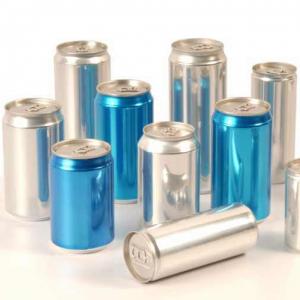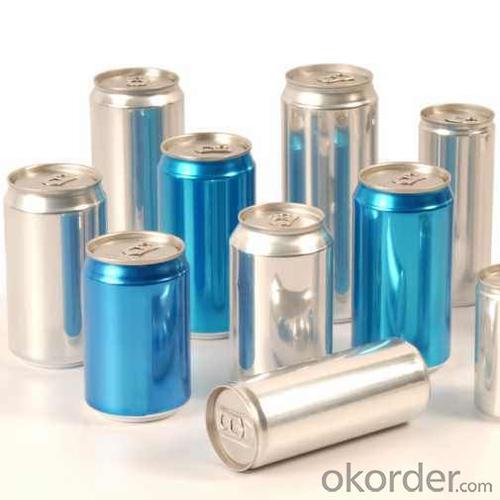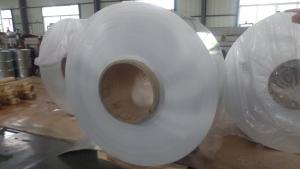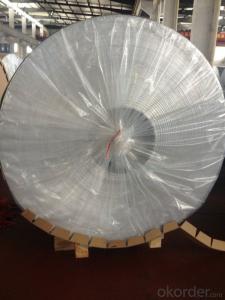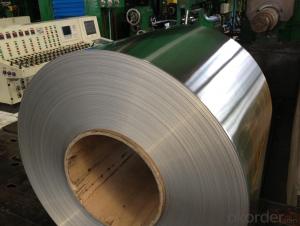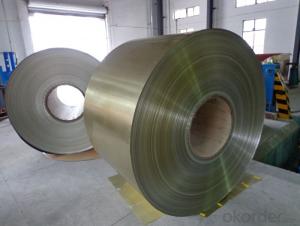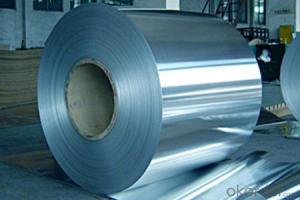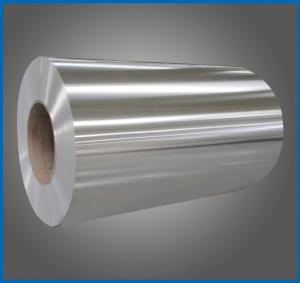3104 5052 5182 Aluminum Coil for Beverage Can Body/ End Tab Stock
- Loading Port:
- China main port
- Payment Terms:
- TT or LC
- Min Order Qty:
- 10 m.t.
- Supply Capability:
- 5000 m.t./month
OKorder Service Pledge
OKorder Financial Service
You Might Also Like
3104 aluminum alloy for aluminum can body
5052 5182 aluminum alloy for aluminum can end and Tab
Aluminum coils for aluminum can body
Alloy type: 3104
Thickness: 0.2-0.28mm made by customer's order
Width: Made by customer's order (peocessed by slitter device ) (+1.5mm--0mm)
Coil weight: 7000kgs--12000kgs
Application: Beverage can, beer can, juice, and so on
Aluminum coils for aluminum end
Alloy type: 5052 5182 H19 H48 H49
Thickness: 0.208mm 0.216mm 0.224mm 0.249mm Made by customer's order
Width: Made by customer's order (peocessed by slitter device )
Coil weight: 2500kgs-3500kgs
Aluminum coils for ring-pull
Alloy type: 5182 H19 H48 H49
Thickness: 0.279mm 0.287mm 0.292mm Make by the customer's order
Width: Make by the customer's order
Coil weight: 2500kgs-3500kgs
- Q: What are the thermal conductivity properties of aluminum coils?
- Aluminum coils have excellent thermal conductivity properties. Aluminum is known for its high thermal conductivity, meaning it can effectively transfer heat. This makes aluminum coils ideal for applications that require efficient heat transfer, such as in air conditioning and refrigeration systems. The thermal conductivity of aluminum coils allows for quick and effective cooling or heating, resulting in energy efficiency and enhanced performance. Additionally, aluminum's good thermal conductivity ensures that heat is evenly distributed across the coil, preventing hotspots and ensuring uniform temperature distribution. Overall, the thermal conductivity properties of aluminum coils make them a preferred choice for various heat transfer applications.
- Q: Can aluminum coils be used in the production of kitchen utensils?
- Kitchen utensils can indeed incorporate aluminum coils in their production. Aluminum is a favored material for kitchen utensils owing to its lightweight nature, durability, and ability to conduct heat. Aluminum coils are effortlessly malleable, allowing them to take on various forms and designs for utensils like pots, pans, baking trays, and even cutlery. Moreover, aluminum possesses resistance against corrosion, making it a suitable choice for contact with food and liquids. Nevertheless, it is essential to keep in mind that aluminum utensils may require a non-stick coating or a protective layer to prevent any adverse reactions with acidic or alkaline foods. Ultimately, owing to their adaptability and practicality, aluminum coils are extensively employed in the production of kitchen utensils.
- Q: How to calculate the dosage of paint for aluminum coil coating? If the weight is 1 ton, the density 2.71 and the thickness 0.12mm, how much paint is needed?
- Coating surface area S*0.12(thickness)*ρ(density) / solid(paint solid)=actual paint consumption brush and roller paint: 100% spray paint: calculated value*70%
- Q: Are aluminum coils easy to install?
- Yes, aluminum coils are generally easy to install. They are lightweight and flexible, making them convenient to handle and position during installation. Additionally, they can be easily cut and shaped to fit the desired space, making the installation process relatively straightforward for experienced professionals or DIY enthusiasts.
- Q: Can aluminum coils be used in the production of aluminum doors?
- Yes, aluminum coils can be used in the production of aluminum doors. Aluminum coils are typically used as a raw material in the manufacturing process of aluminum doors. These coils are made from high-quality aluminum alloy and are available in various thicknesses and widths. They can be easily formed into different shapes and sizes to meet the specific requirements of the doors. Additionally, aluminum coils are lightweight, durable, and resistant to corrosion, making them an ideal choice for door production. The coils are often processed through various techniques such as cutting, bending, and welding to create the desired door components. Overall, aluminum coils offer many advantages in terms of versatility, strength, and aesthetics, making them a popular choice for aluminum door manufacturers.
- Q: What is the bending radius for aluminum coils?
- The bending radius for aluminum coils can vary depending on several factors such as the thickness and temper of the aluminum, as well as the specific alloy being used. Generally, aluminum coils can be bent to a relatively small radius compared to other materials due to its high ductility and malleability. However, it is important to consult the manufacturer's guidelines or specifications for the specific aluminum coil being used to determine the recommended bending radius. This will ensure that the bending process does not exceed the material's limits and result in undesirable deformation or damage.
- Q: Can aluminum coils be used in electrical transmission systems?
- Yes, aluminum coils can be used in electrical transmission systems. Aluminum is a commonly used material in electrical transmission systems due to its favorable electrical conductivity, high strength-to-weight ratio, and cost-effectiveness compared to other materials such as copper. Aluminum coils are used in transformers, motors, generators, and other electrical devices. Additionally, aluminum coils are lightweight, which makes them easier to handle and install in transmission systems. However, it is important to consider that aluminum has a lower electrical conductivity than copper, so larger cross-sectional areas may be required to achieve the same electrical performance. Proper design and engineering practices should be followed to ensure that aluminum coils are appropriately sized and connected in electrical transmission systems to maintain efficiency, reliability, and safety.
- Q: Im trying to make a aluminum ring. I want it to be rock hard. PLZZAnswers that work get best answer
- First off, use the right alloy. Making the right alloys yourself is a recipe for disaster so it is best to buy them. There are a number of inexpensive alloys of aluminum that can be hard enough to be used as a ring. 5000 series, 6000 series and 7000 series are all pretty hard. If the alloy has a T in front of it, that means you can temper it by heating it then cooling it at a given rate (usually fast). To make the surface just a little bit harder, you can then anodize it (check out the yahoo group anodizing 101 for details - you can get some really pretty colors this way) and seal it. You can also coat it with a thin layer of a clear acrylic. Of course, if you really want ROCK hard, you can oxidize it, combine it with oxygen to make Al2O3 which is corundum, more commonly known as ruby/sapphire - one of the hardest materials known to man. You could also look up someone on the web that makes synthetic rubies and ask them to make you a ring from the ruby itself...then maybe do some engraving and gold leaf on it so that the metal is set in the gem rather than vice versa! That would be pretty cool! Also about as hard as you can get and totally unique.
- Q: Can aluminum coils be used for signage and display applications?
- Yes, aluminum coils can be used for signage and display applications. Aluminum is a versatile material that is lightweight, durable, and resistant to corrosion, making it an ideal choice for various signage and display purposes. Its flexibility allows for easy shaping and customization, while its smooth surface provides a perfect canvas for printing graphics and designs. Additionally, aluminum coils can be easily mounted, making them suitable for both indoor and outdoor signage and displays.
- Q: Can aluminum coils be painted or coated?
- Yes, aluminum coils can be painted or coated. The process involves preparing the surface, applying a primer, and then adding the desired paint or coating. This helps enhance the appearance, protect against corrosion, and improve durability.
Send your message to us
3104 5052 5182 Aluminum Coil for Beverage Can Body/ End Tab Stock
- Loading Port:
- China main port
- Payment Terms:
- TT or LC
- Min Order Qty:
- 10 m.t.
- Supply Capability:
- 5000 m.t./month
OKorder Service Pledge
OKorder Financial Service
Similar products
Hot products
Hot Searches
Related keywords
